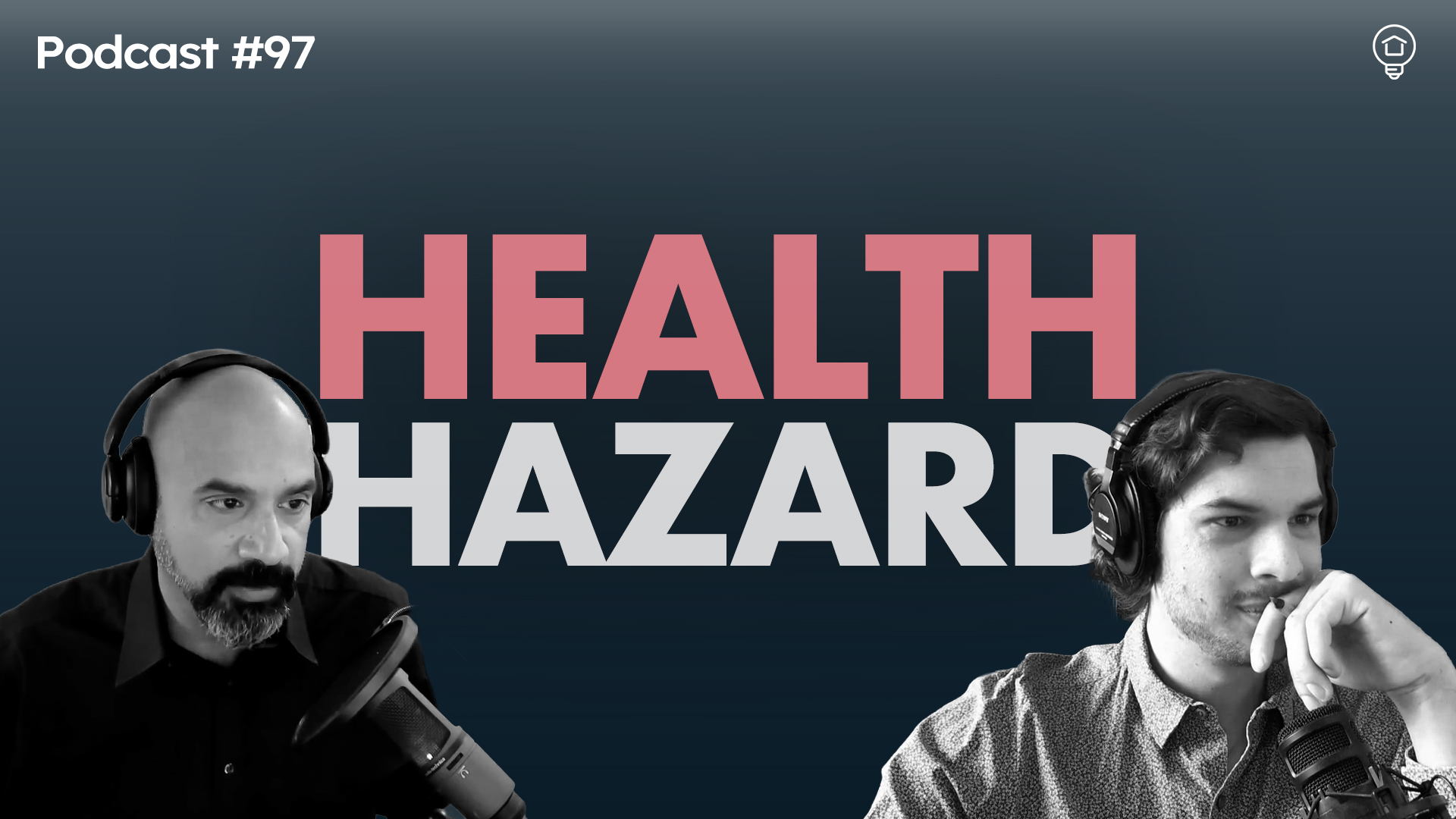The Impact of the Coronavirus on Boulder Real Estate [Does Anyone Know How To Fly a Plane?]
In the last few weeks, I’ve had many private conversations with clients about the impact of the Coronavirus. After yesterday’s +1,000 point drop in DJIA, it’s time to talk about the potential impact, publicly.
1. As with any market forecast, take it with a grain of salt. Although I have professional training and experience in financial analysis, and some understanding of basic biology, nobody has a crystal ball. There are many elements of this situation. It’s also unfolding very quickly, which makes it challenging to make predictions.
2. Early data shows Covid19 may have an R0 of +3 and a CFR of ~2%. It is highly virulent. Containment efforts may slow the spread, but they are likely to fail. It is a Black Swan.
3. Yes, the world has done some planning for a pandemic, but it has been many years since we’ve actually seen a real one. There is a public health component, a political component, a potential for reduced demand for goods and services, and supply chains are now tightly integrated. How it plays out around the world is untested.
For example, there are reports of medical supply companies being unable to fulfill orders for masks. Meanwhile, costs for consumer N95 masks on Amazon have almost tripled, if you can even get them at all. Think about the impact that has on scheduling medical procedures. Think about the impact it has on consumer psychology. Now imagine the impact of quarantined towns, closed businesses, and schools. Half a billion people are under quarantine in China and quarantines are now being enforced in Europe. It will likely happen here and government is being forced to choose between protecting public health and protecting the economy.
4. Primary home markets like Boulder, Denver, and Fort Collins tend to follow the general economic cycle. Secondary home markets like Aspen and Vail tend to be more highly volatile. When the economy turns, luxury second homes and toys go on sale.
Remember: In the short-term, people and businesses facing fear and uncertainty will hold off major investment decisions. In the long-term, the fundamentals of what drives supply and demand are unlikely to change.
Historically, Boulder real estate is a fantastic investment. Increases in supply and a slower market this year are therefore likely buying opportunities, but only if you exercise judicious property selection and disciplined negotiation.
5. Central banks will inject liquidity into the markets, and there is a high probability for future rate reductions.
6. The Fed’s ability to blow up another asset bubble is more limited than last time. Rates are already historically low. Unless the Fed starts offering negative rates, there’s a limit to how low rates can go. By the way, some people believe the Fed began QE4 back in September in the Repo market.
7. The last serious downturn in Boulder real estate was 2006-2009 during which the entry level saw only a small drop in values, while the higher end saw some properties lose 30% or more. This price drop took a long time to happen and low prices didn’t last long, but some people were caught having to sell in that cycle. Odds are that you won’t see giant price declines like that again but you should see more inventory, greater selection, and the possibility of more buyer leverage in negotiations.
If your real estate agent says Boulder real estate only goes up, get a better Realtor. The market varies by property type, location, and price range.
8. The higher your budget, the more careful you should be in your property selection process. Buying at the entry level in Boulder is a low-risk proposition. For every $625,000 house, there is a line of potential buyers. Luxury properties are another story. We advise our clients to prioritize property selection; focus on location, function, and intelligent house design.
9. To reduce the risk of capital loss, buyers should be prepared for a minimum three year holding period. If you think you’ll need to sell it sooner than three years, you are likely better off renting. Don’t rush into a real estate purchase or sale without thinking clearly about whether this is the right long-term move.
As always, choose your real estate adviser carefully. Read Why Us.
Osman Parvez is the Founder and Employing Broker of House Einstein. Originally from the Finger Lakes region of New York, he lives in Boulder with his wife and their Labrador Retriever. He has been a Realtor since 2005.
Osman is the primary author of the House Einstein blog with over 1,200 published articles about Boulder real estate. His work has also appeared in many other blogs about Boulder as well as mainstream newspapers, including the Wall Street Journal and Daily Camera. For more information, click HERE.
Fresh Listings | Our review of the most compelling new listings to hit the Boulder real estate market.| Subscribe
Thinking about buying or selling and want professional advice? Call us at 303.746.6896. Your referrals are deeply appreciated.
The ideas and strategies described in this blog are the opinion of the writer and subject to business, economic, and competitive uncertainties. House Einstein strongly recommends conducting rigorous due diligence and obtaining professional advice before buying or selling real estate.
The Impact of the Coronavirus on Boulder Real Estate [Does Anyone Know How To Fly a Plane?]
In the last few weeks, I’ve had many private conversations with clients about the impact of the Coronavirus. After yesterday’s +1,000 point drop in DJIA, it’s time to talk about the potential impact, publicly.
1. As with any market forecast, take it with a grain of salt. Although I have professional training and experience in financial analysis, and some understanding of basic biology, nobody has a crystal ball. There are many elements of this situation. It’s also unfolding very quickly, which makes it challenging to make predictions.
2. Early data shows Covid19 may have an R0 of +3 and a CFR of ~2%. It is highly virulent. Containment efforts may slow the spread, but they are likely to fail. It is a Black Swan.
3. Yes, the world has done some planning for a pandemic, but it has been many years since we’ve actually seen a real one. There is a public health component, a political component, a potential for reduced demand for goods and services, and supply chains are now tightly integrated. How it plays out around the world is untested.
For example, there are reports of medical supply companies being unable to fulfill orders for masks. Meanwhile, costs for consumer N95 masks on Amazon have almost tripled, if you can even get them at all. Think about the impact that has on scheduling medical procedures. Think about the impact it has on consumer psychology. Now imagine the impact of quarantined towns, closed businesses, and schools. Half a billion people are under quarantine in China and quarantines are now being enforced in Europe. It will likely happen here and government is being forced to choose between protecting public health and protecting the economy.
4. Primary home markets like Boulder, Denver, and Fort Collins tend to follow the general economic cycle. Secondary home markets like Aspen and Vail tend to be more highly volatile. When the economy turns, luxury second homes and toys go on sale.
Remember: In the short-term, people and businesses facing fear and uncertainty will hold off major investment decisions. In the long-term, the fundamentals of what drives supply and demand are unlikely to change.
Historically, Boulder real estate is a fantastic investment. Increases in supply and a slower market this year are therefore likely buying opportunities, but only if you exercise judicious property selection and disciplined negotiation.
5. Central banks will inject liquidity into the markets, and there is a high probability for future rate reductions.
6. The Fed’s ability to blow up another asset bubble is more limited than last time. Rates are already historically low. Unless the Fed starts offering negative rates, there’s a limit to how low rates can go. By the way, some people believe the Fed began QE4 back in September in the Repo market.
7. The last serious downturn in Boulder real estate was 2006-2009 during which the entry level saw only a small drop in values, while the higher end saw some properties lose 30% or more. This price drop took a long time to happen and low prices didn’t last long, but some people were caught having to sell in that cycle. Odds are that you won’t see giant price declines like that again but you should see more inventory, greater selection, and the possibility of more buyer leverage in negotiations.
If your real estate agent says Boulder real estate only goes up, get a better Realtor. The market varies by property type, location, and price range.
8. The higher your budget, the more careful you should be in your property selection process. Buying at the entry level in Boulder is a low-risk proposition. For every $625,000 house, there is a line of potential buyers. Luxury properties are another story. We advise our clients to prioritize property selection; focus on location, function, and intelligent house design.
9. To reduce the risk of capital loss, buyers should be prepared for a minimum three year holding period. If you think you’ll need to sell it sooner than three years, you are likely better off renting. Don’t rush into a real estate purchase or sale without thinking clearly about whether this is the right long-term move.
As always, choose your real estate adviser carefully. Read Why Us.
Osman Parvez is the Founder and Employing Broker of House Einstein. Originally from the Finger Lakes region of New York, he lives in Boulder with his wife and their Labrador Retriever. He has been a Realtor since 2005.
Osman is the primary author of the House Einstein blog with over 1,200 published articles about Boulder real estate. His work has also appeared in many other blogs about Boulder as well as mainstream newspapers, including the Wall Street Journal and Daily Camera. For more information, click HERE.
Fresh Listings | Our review of the most compelling new listings to hit the Boulder real estate market.| Subscribe
Thinking about buying or selling and want professional advice? Call us at 303.746.6896. Your referrals are deeply appreciated.
The ideas and strategies described in this blog are the opinion of the writer and subject to business, economic, and competitive uncertainties. House Einstein strongly recommends conducting rigorous due diligence and obtaining professional advice before buying or selling real estate.
Share This Listing!
More about the author
Osman Parvez
Owner & Broker at House Einstein as well as primary author of the House Einstein blog with over 1,200 published articles about Boulder real estate. His work has appeared in the Wall Street Journal and Daily Camera.
Osman is the primary author of the House Einstein blog with over 1,200 published articles about Boulder real estate. His work has also appeared in many other blogs about Boulder as well as mainstream newspapers, including the Wall Street Journal and Daily Camera. Learn more about Osman.
Work with
House Einstein
Thinking about buying or selling and want professional advice?
Call us at 303.746.6896
Your referrals are deeply appreciated.














